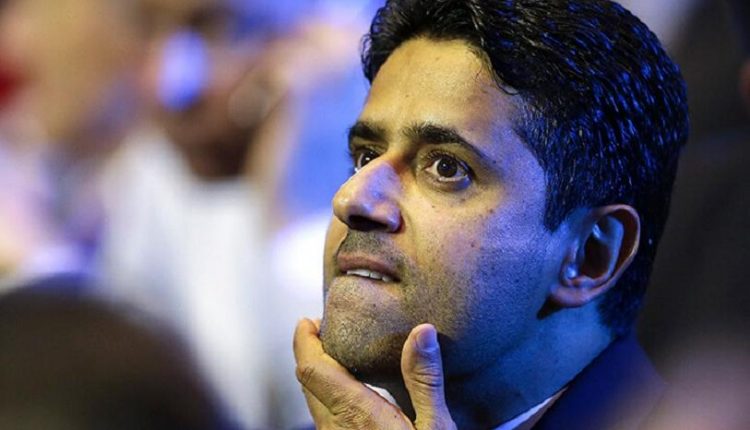©2021 Reporters Post24. All Rights Reserved.
Pegasus surveillance Phone numbers belonging to Nasser al-Khelaifi, the Qatari president of football club Paris Saint Germain and beIN Sports chief executive, were on the list of numbers that were potentially targeted with Pegasus spyware, French daily Le Monde has reported.
Pegasus, software made by Israeli company NSO, has been implicated in mass surveillance of journalists, human rights defenders, and at least 14 heads of state, in addition to several of their family members.
Their phone numbers were among about 50,000 potential surveillance targets on a list leaked to rights group Amnesty International and Paris-based Forbidden Stories, which was shared with a consortium of news outlets.
Pegasus can hack into mobile phones without a user’s knowledge, enabling clients to read every message, track a user’s location and tap into the phone’s camera and microphone, essentially turning a phone into a surveillance device.
Gulf dispute
According to an investigation by Le Monde, two mobile numbers belonging to al-Khelaifi also appeared on the leaked list.
Le Monde reported that the same client who used Pegasus to potentially hack the phones of the management of beIN Media Group, also targeted senior Turkish, Emirati and Lebanese officials and several voices critical of Saudi Arabia’s monarchy, suggesting that Saudi security agencies were behind the hacking.
Le Monde, however, stressed that it was not able to physically examine the phones of al-Khelaifi or other employees of beIN, and that it therefore could not confirm whether these devices were indeed infected with Pegasus.
The daily reported that the potential hacking of al-Khelaifi’s phones took place in 2018, at the height of the Gulf dispute that pitted Qatar against Saudi Arabia, the United Arab Emirates, Bahrain and Egypt. In June 2017, these four countries enforced a diplomatic and trade blockade on Qatar, which lasted nearly four years.
The blockading countries accused Doha of “supporting terrorism” and having ties with Iran that they deemed too close. Qatar has always rejected the accusations.
As head of beIN, al-Khelaifi was at the centre of the dispute between Qatar and Saudi Arabia over pirate channel BeoutQ, which stole the signals of beIN to broadcast top football competitions and tournaments.
Le Monde reported that shortly before al-Khelaifi potentially fell victim to the Pegasus hack, Qatar had filed a formal complaint with the World Trade Organization (WTO) over BeoutQ’s operations. In the complaint, Qatar demanded $1bn in damages from the pirate channel.
NSO reaction
In a reaction on Thursday, NSO said the leak is “not a list of targets or potential targets of Pegasus”.
NSO chief executive Shalev Hulio told Israeli Army Radio he would “be very pleased if there were an investigation, so that we’d be able to clear our name”. He also alleged there was an effort “to smear all the Israeli cyber industry”.
NSO has said it exports to 45 countries, with approval from the Israeli government.
Hulio said the company could not disclose the details of its contracts due to “issues of confidentiality”, but said he would offer full transparency to any government seeking more details.
“Let any state entity come along – any official from any state – and I’ll be prepared to open everything up to them, for them to enter, to dig around from top to bottom,” he said.
Source: aljazeera.com


